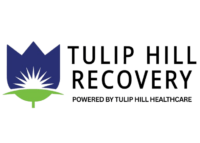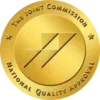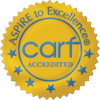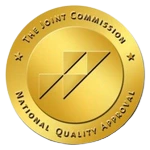What We Treat in Murfreesboro, TN
At Tulip Hill Recovery, effective healing starts with understanding the full scope of what we treat. Located in the heart of Murfreesboro, our center provides personalized and evidence-based care for individuals struggling with addiction and co-occurring mental health conditions.
Our approach goes beyond simply addressing substance use—we treat the whole person, tailoring every program to meet each client’s unique needs, goals, and challenges.
Addiction affects people differently, which is why we offer a range of flexible, structured care options.
Our services include outpatient treatment programs such as Partial Hospitalization (PHP) and Intensive Outpatient (IOP), along with specialized support for alcohol addiction, drug addiction, trauma, PTSD, and dual diagnosis cases.
Whether someone is just starting on a recovery journey or returning for continued support, we create treatment plans that evolve with them.
By offering both clinical and holistic therapies, we help individuals rebuild their lives with tools that support long-term sobriety and emotional wellness.
This page will explain what we treat and how our addiction treatment programs in Murfreesboro are designed to support healing at every step.
From detox coordination to trauma-informed care, Tulip Hill is here to help you or your loved one move forward with confidence and clarity.

Alcohol Addiction Treatment with Tulip Hill Recovery
At Tulip Hill Recovery, we understand that addiction doesn’t just affect one area of a person’s life—it impacts everything. That’s why our drug rehab in Clarksville, TN takes a comprehensive, whole-person approach to healing.
As a family-run treatment center, we offer more than just clinical expertise—we offer empathy, personal connection, and a commitment to helping our clients succeed in recovery.
Our team is made up of compassionate professionals who have walked this path, either personally or alongside loved ones. That lived experience shapes everything we do—from the way we design treatment plans to how we support families through the healing process.
At our Clarksville drug rehab, clients are never just a number. They’re individuals with unique stories, goals, and needs—and they deserve care that reflects that.

Drug Addiction Treatment with Tulip Hill Recovery
Drug addiction doesn’t look the same for everyone, but its effects are consistently devastating.
Whether it’s opioids, methamphetamine, cocaine, benzodiazepines, or prescription medications, substance use can quickly take control of a person’s life, damaging their health, relationships, job stability, and mental well-being.
What starts as experimentation or a way to manage pain or emotions often turns into a cycle that feels impossible to break.
Addiction deeply alters the brain’s reward system, making it harder for people to stop using even when they want to.
Many individuals face shame, legal problems, financial strain, or isolation.
No matter how far addiction has progressed, recovery is possible with the right support.
Tulip Hill Recovery offers outpatient drug addiction treatment programs in Murfreesboro designed to meet people where they are.
Our approach combines medical, psychological, and behavioral support to help clients stop using and build a more stable, fulfilling life.
When detox is necessary, we coordinate care with trusted providers to ensure a safe, medically supervised process.
Once stabilized, clients engage in structured therapy that addresses addiction and the issues fueling it.
We use evidence-based treatments, such as Cognitive Behavioral Therapy (CBT), Dialectical Behavior Therapy (DBT), and group counseling, to help clients build resilience and emotional regulation.
These therapies teach individuals how to navigate cravings, triggers, and underlying trauma or mental health concerns.
Recovery isn’t just about abstaining from drugs—it’s about learning new ways to live.
Our programs help clients develop lasting tools for sobriety, emotional wellness, and healthy decision-making. With the right care and a supportive community, healing is always possible.
What We Treat at Tulip Hill Recovery
At Tulip Hill Recovery, we specialize in treating a wide range of substance disorders and co-occurring conditions.
Whether someone is struggling with one substance or several, or dealing with the added challenges of trauma, depression, or anxiety, our experienced team provides personalized care that addresses the full picture.
At Tulip Hill Recovery, we’re here to help individuals and families heal, step by step.
Substances That We Treat For At Tulip Hill Recovery
- Alcohol Use Disorder
Alcohol dependence can lead to serious physical and psychological health complications, including liver damage, cognitive impairment, and emotional instability.
At Tulip Hill, medically supervised detox helps individuals safely withdraw from alcohol while clinical therapy and relapse prevention strategies ensure long-term sobriety.
- Opioid Addiction(Heroin, Fentanyl, Painkillers)
We treat addiction to heroin, fentanyl, and prescription opioids such as oxycodone and hydrocodone.
Treatment includes safe detox coordination, trauma-informed therapy, and relapse prevention, with medication-assisted treatment (MAT) available when clinically appropriate.
- Methamphetamine
Stimulant addiction affects energy levels, mental health, and impulse control. We provide behavioral therapies like Cognitive Behavioral Therapy (CBT) to help individuals manage cravings and rebuild healthy habits.
These substances can create serious long-term effects on brain function, mood, and overall health. Our program helps clients stabilize, regulate emotions, and rebuild mental clarity through structured therapy and holistic support.
- Benzodiazepine Dependence
These drugs are commonly prescribed for anxiety but are highly addictive. Our program helps clients safely taper off benzos with medical supervision while developing alternative coping strategies.
Benzodiazepine withdrawal can be dangerous without proper care, which is why we offer carefully coordinated treatment to help clients taper safely while learning how to manage anxiety or panic in healthier ways.
- Polysubstance Use
Many individuals we work with don’t just struggle with one substance—they use multiple, often to balance or mask the effects of another. Polysubstance use is complex and requires an integrated treatment approach.
We assess each client’s unique combination of substances and tailor a recovery plan to support detox, stabilization, and long-term healing.
Tulip Hill Recovery offers the expertise and support you need to start fresh. Our doors are open to anyone ready to take the next step.
A Holistic Approach to Recovery

Beyond traditional treatment methods, our programs integrate holistic therapies, such as nutrition counseling, meditation, and mindfulness, to promote balanced emotional responses and physical well-being.
These approaches support learning to reduce stress, develop resilience, and maintain sobriety for a long time.
For those in Brentwood seeking effective addiction treatment, our center provides a structured, supportive path to recovery by combining medical care, therapy, and holistic wellness for sustained healing and relapse prevention.
- Trauma-Informed CareMany of our clients have gone through trauma that fuels or worsens their substance use. We provide a safe, supportive environment that honors each client’s past while helping them move forward with new tools for healing.
- Small Client-to-Staff RatioWith intentionally limited enrollment, we ensure every client receives personalized attention and one-on-one support. This allows us to adjust treatment plans in real time based on progress, needs, and goals.
- Individualized TreatmentNo two people experience addiction in the same way. That’s why we take time to understand the full picture—substance use history, mental health, family dynamics, and lifestyle—so we can tailor treatment to each person.
Why People Choose Tulip Hill Recovery
Although Tulip Hill Recovery is located in Murfreesboro, many of our clients come from nearby cities like Brentwood, and for good reason.
For individuals seeking a fresh start, a change in environment can be an essential part of breaking free from the patterns and triggers that feed addiction.
That’s why our drug rehab in Tennessee, has become a top choice for those ready to leave behind familiar surroundings and focus fully on recovery.
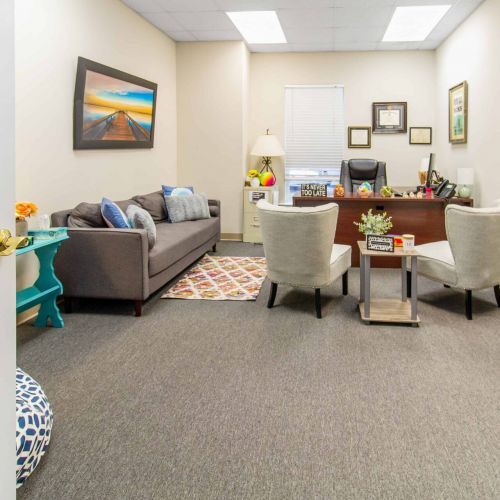
State-Of-The-Art Facility

Small Groups, Big Recovery

Clinician & Medical Owned & Operated

Wellness-Focused Bedrooms

Twice‑Weekly Individual Therapy

Fun and Games

Family Therapy Sessions

Conveniently Located near Nashville
Tulip Hill Recovery is conveniently located just outside Nashville, providing easy access to world-class addiction treatment without the distractions of the city. Whether you’re flying in for treatment or visiting a loved one in recovery, Nashville’s International Airport, (BNA), offers quick access to our Murfreesboro facility. This close proximity allows for smoother admissions, flexible travel plans, and the support of family members throughout the treatment process.
Start Drug and Alcohol Rehab Today at Tulip Hill Recovery
If you or someone you love is struggling with addiction, don’t wait another day to take that first step. At Tulip Hill Recovery, we provide the compassionate care and clinical expertise you need to reclaim your life and start fresh.
At Tulip Hill Recovery in Murfreesboro, we provide compassionate, evidence-based care that helps individuals overcome addiction and rebuild their lives.
Whether you need detox, structured treatment, or ongoing support, our team is here to guide you every step of the way.
Choosing treatment can be an opportunity for a fresh start, offering privacy, distance from triggers, and a focused environment for recovery.
Frequently Asked Questions about Tulip Hill Recovery
Tulip Hill Recovery provides multiple levels of care, including Partial Hospitalization (PHP), Intensive Outpatient Programs (IOP), Outpatient services, and aftercare planning. Each treatment plan is customized to meet the emotional, behavioral, and mental health needs of every client.
Yes. Tulip Hill Recovery specializes in dual diagnosis treatment, supporting individuals with both substance use disorders and mental health conditions such as anxiety, depression, trauma/PTSD, bipolar disorder, and more.
Yes. Most major insurance plans are accepted. The admissions team will verify your insurance benefits quickly and confidentially to determine what services are covered and whether there will be any out-of-pocket costs.
Absolutely. Family therapy, education, and communication support are important components of the recovery process. Tulip Hill Recovery encourages family involvement to help rebuild trust, strengthen relationships, and support long-term healing.
Holistic therapies such as mindfulness, meditation, yoga, nutritional guidance, and expressive therapies may be incorporated into treatment depending on individual needs. These approaches help clients heal mentally, emotionally, physically, and spiritually.
The length of care varies depending on the individual. Some clients participate for several weeks, while others may remain in outpatient or aftercare programs for longer-term support. Each treatment plan is based on clinical needs rather than a fixed timeline.
The admissions team will conduct a confidential assessment, verify insurance, and help determine the appropriate level of care. They can also assist with scheduling detox, transportation, or same-day admissions when available.
Yes. Tulip Hill Recovery follows HIPAA guidelines and all federal privacy laws. Personal information, treatment details, and health records are strictly confidential.
Tulip Hill Recovery is a family-owned facility that focuses on compassionate, individualized care. The team prioritizes connection, trauma-informed services, dual diagnosis support, and a holistic approach that treats the whole person—not just the addiction.
Evidence-based treatments include Cognitive Behavioral Therapy (CBT), Dialectical Behavior Therapy (DBT), trauma-focused therapy, group counseling, individual therapy, family therapy, relapse prevention, and holistic therapeutic practices.
A clinical assessment helps determine whether PHP, IOP, or outpatient services are the best fit. Factors considered include mental health symptoms, addiction severity, home environment, medical needs, and personal goals.
Yes. Clients receive ongoing resources such as relapse-prevention planning, alumni support, community referrals, and continued therapy recommendations to help maintain long-term recovery.
Start Your Journey to Healing Today

Call or message us

Free assessment

Insurance check

Choose a start date
 | Medically Reviewed By: Board-Certified Psychiatrist and Addictionologist |
 | Clinically Reviewed By: Board Certified Clinical Social Worker |
Our Verifications & Affiliations
Treatment Programs
Yes, Your Insurance Covers Detox and Rehab Treatment.
Get Family Support Now
Supporting Families Through Recovery
We understand addiction affects the whole family. Our comprehensive family program helps rebuild trust and restore relationships.
Weekly Family Therapy Sessions
Educational Workshops
Support Groups
Communication Skills Training
